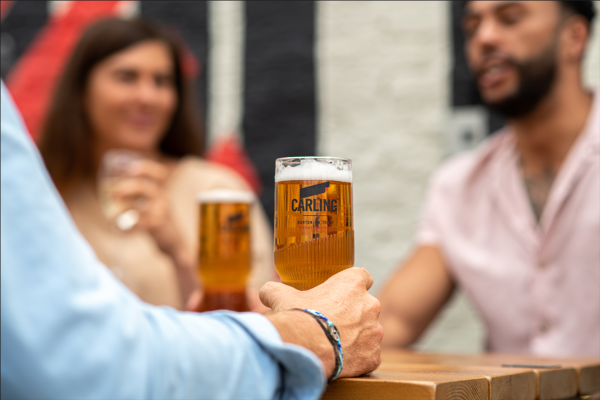PROMOTED CONTENT - GREEN INITIATIVE
6 easy steps to make your venue more sustainable

Creating more sustainable venues is not only good for the environment but it can also help to attract new customers by giving your venue a competitive edge.
In fact, a report last year showed 44% of consumers see sustainability as important when deciding which venues to visit[1] - leading to increased scrutiny on what venues are doing in response to this.
And despite many showing an appetite to play their part, it can be difficult to know what to prioritise. Investing in big changes can be daunting from an operational and financial perspective, particularly in the current economic climate. But being greener doesn’t always require significant time and investment.
A few simple improvements that don’t require major changes to the way you work can make all the difference. Some can even have a positive impact from an efficiency and financial perspective too, so why not embrace the change and kickstart your sustainability journey today?
Line efficiency
Ensuring your lines are operating as efficiently as possible is key to minimising waste, and at the same time maximising profit. Regular cleaning can make a big difference and usually around once a week is considered best.
Having the right expertise in your team is vital to making sure you can monitor the upkeep of your lines, so make sure there are enough team members that are educated in properly cleaning lines.
It also helps to ensure you’re pouring the perfect pint every time, which has the additional benefit of enhancing the customer experience and will encourage people to visit again. You should take the time to make sure all your staff are trained to deliver the perfect serve.
Cellar management
Managing your cellar properly is vital to maintaining quality, particularly when it comes to cask ale, but it’s important from a sustainability standpoint too.
You should ensure that you’re getting the temperature just right, with around 11-13 degrees Celsius considered optimum. Any cooler or warmer than it needs to be can affect quality and could increase energy costs too.
It’s also important to keep the cellar as clean as possible, and it may require a deep clean of the walls, sink and line cleaning equipment from time to time.
Cooler maintenance
Cleaning your coolers regularly can make a big difference in maximising performance.
Debris build up on cooler grills can seriously hinder performance and increase energy costs or detrimentally affect product quality. Therefore they should be kept clean and clear of obstructions
If you are unsure about how to maintain your cooler speak with your account team or beer provider and they will be able to support with top tips for maintaining optimum performance.
Limit packaging
The more packaging you have, the more you have to get rid of. This can pose challenges, particularly when the packaging isn’t recyclable.
Look for products that use as little packaging as possible, and any packaging that they do use should be recyclable. At Molson Coors, 99% of our packaging is reusable or recyclable, helping our customers to minimise the amount of non-recyclable waste in their venues.
Make sure your staff are familiar with the recycling process and engaged in your efforts to dispose of all waste properly, segregating them where appropriate.
Outdoor occasions
Venues with outdoor space will want to create an inviting space for customers this summer, but that shouldn’t mean sacrificing sustainability principles.
Post Covid, venues have continued to embrace outdoor spaces, but with warm weather never a guarantee in Britain many venues provide blankets and covered spaces to cater for this demand. If you need heating, consider resource use – for example, electric heaters powered from renewable electricity are less impactful than gas powered heaters. Using external LED lighting can also cut energy usage and limit light pollution for those premises located in the countryside where lighting could impact wildlife.
Venues will often favour plastic cups outdoors. If you do, think about setting up well-signposted areas for returning cups so they can be recycled, and possibly even charging deposits to encourage customers to return them.
Supplier relationships
Stocking sustainable products is one of the best ways to improve your environmental impact. You can speak to suppliers to find out more about what they’re doing to make their products more sustainable, and how they can support you on your own sustainability journey. At Molson Coors we are supplied with renewable electricity across our UK premises portfolio, we also capture CO2 produced during the fermentation stage of our process to then reuse it supporting carbonation of our drinks.
We know how important sustainability is with our own suppliers. That’s why we work closely along our supply chain with our Molson Coors Growers Group – a network of approximately 140 British farmers who provide the malting barley we use to brew our beers. We work in collaboration with the group to achieve more sustainable farming methods, which benefit their business and ours.
These are just a few examples of what venues can do, but there are plenty of other small changes you can make that can have a positive impact on your sustainability credentials. Every venue is different, and some things will work better in certain venues. We’d always urge you to think about what works best for you, and to be creative with the ways you can be more environmentally-friendly.
[1] Sustainability Matters: What consumers want and how brands can win – CGA, June 2023









